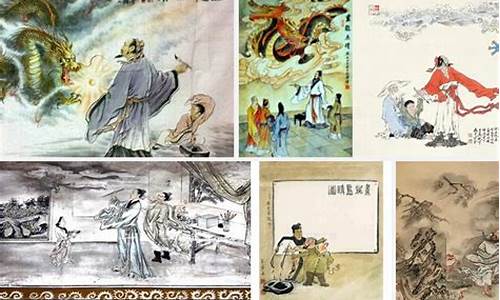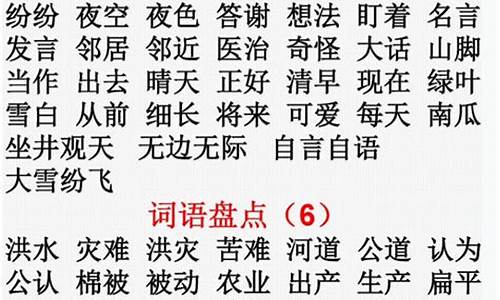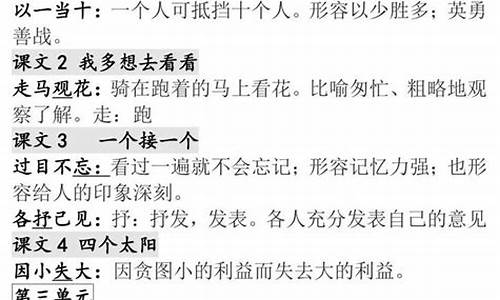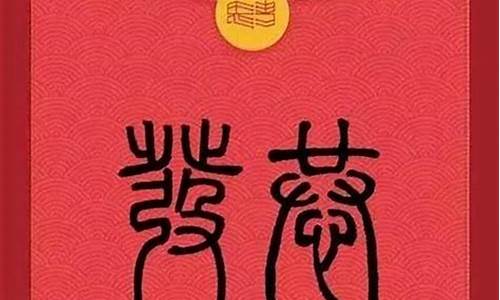成语故事英语版短篇初中_成语故事英语版短篇初中带翻译
我很了解成语故事英语版短篇初中这个话题,并且可以为您提供一系列的信息和建议。请告诉我您需要了解什么。
1.�������Ӣ����ƪ����
2.英语的成语故事
3.英语英语成语故事之自相矛盾
4.优秀经典成语故事中英双语?
5.用英语说成语故事
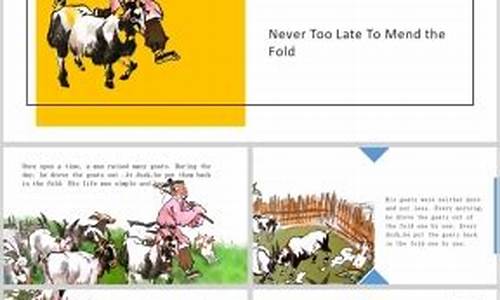
�������Ӣ����ƪ����
Peaches and Plums Do Not He to Talk, Yet the World Beats a Path to Them--Natural Attraction(桃李不言,下自成蹊)
Duing the Western Han Dynasty(206 B.C.- A.D.24)Period, there was a very famous general whose name was Li Guang. He was very bre and skillful in battle, and had fought more than seventy battles with the Huns, an ancient nationality in China.Hing made brilliant achievements in war, he was deeply loved and esteemed by the officers and men as well as the mon people. However,he did not claim credit for himself and bee arrogant,although he held a high post,manding a big army,and had rendered outstanding service in defending the county. He was not only polite and amiable, but also shared weal and woe with the soldiers. He always had the troops under his mandat heart,and whenever gifts were bestowed to him by the imperial ,he distributed the gifts to his officers and men. When marching, he endured the torments of hunger and thirst as the soldiers did when food and water were in short supply. When fighting, he charged at the head of his men,and ,when he ge the order,every soldier advanced brely to engage in fighting,not fearing death.
When the sad news of the heath of General Li Guang reached the militaty camp,the officers and men of the whole army wept bitterly.
西汉时候,有一位勇猛善战的将军,名叫李广,一生跟匈奴打过七十多次仗,战功卓著,深受官兵和百姓的爱戴。李广虽然身居高位,统领千军万马,而且是捍卫国度的功臣,但他一点也不居功自傲。他不仅待人和睦,还能和士兵同甘共苦。每次朝廷给他的赏赐,他首先想到的是他的部下,就把那些赏赐统统分给官兵们;行军打仗时,遇到粮食或水供给不上的情况,他自己也同士兵们一样忍饥挨饿;打起仗来,他身先士卒,英勇顽强,只要他一声令下,大家个个奋勇杀敌,不握牺牲。这是一位多么让人崇敬的大将军啊!
后来,当李广将军去世的噩耗传到军营时,全军将士无不痛哭流涕,连许多与大将军平时并不熟悉的百姓也纷纭悼念他。在人们心目中,李广将军就是他们崇拜的大好汉。
汉朝伟大的史学家司马迁在为李广立传时称赞道:“桃李不言,下自成蹊。”意思是说,桃李有着芳香的花朵,甜美的果实,虽然它们不会说话,但仍然会吸引人们到树下赏花尝果,以至树下都走出一条小路,李广将军就是以他的真诚和高贵的品质赢得了人们的崇敬。
英语的成语故事
1.An Apple of Discord争斗之源;不和之因;祸根
An Apple of Discord直译为“纠纷的苹果”,出自荷马史诗Iliad中的希腊神话故事
传说希腊阿耳戈英雄(Argonaut)珀琉斯(Peleus)和爱琴海海神涅柔斯的女儿西蒂斯(Thetis)在珀利翁山举行婚礼,大摆宴席。他们邀请了奥林匹斯上(Olympus)的诸神参加喜筵,不知是有意还是无心,惟独没有邀请掌管争执的女神厄里斯(Eris)。这位女神恼羞成怒,决定在这次喜筵上制造不和。于是,她不请自来,并悄悄在筵席上放了一个金苹果,上面镌刻着“属于最美者”几个字。天后赫拉(Hera),智慧女神雅典娜(Athena)、爱与美之神阿芙罗狄蒂(Aphrodite),都自以为最美,应得金苹果,获得“最美者”称号。她们争执不下,闹到众神之父宙斯(Zeus)那里,但宙斯碍于难言之隐,不愿偏袒任何一方,就要她们去找特洛伊的王子帕里斯(Paris)评判。三位女神为了获得金苹果,都各自私许帕里斯以某种好处:赫拉许给他以广袤国土和掌握富饶财宝的权利,雅典娜许以文武全才和胜利的荣誉,阿芙罗狄蒂则许他成为世界上最美艳女子的丈夫。年青的帕里斯在富贵、荣誉和美女之间选择了后者,便把金苹果判给爱与美之神。为此,赫拉和雅典娜怀恨帕里斯,连带也憎恨整个特洛。后来阿芙罗狄蒂为了履行诺言,帮助帕里斯拐走了斯巴达国王墨涅俄斯的王后---绝世美女海伦(Helen),从而引起了历时10年的特洛伊战争。不和女神厄里斯丢下的那个苹果,不仅成了天上3位女神之间不和的根源,而且也成为了人间2个民族之间战争的起因。因此,在英语中产生了an le of discord这个成语,常用来比喻any subject of disagreement and contention;the root of the trouble;dispute等意义
这个成语最初为公元2世纪时的古罗马历史学家马克·朱里·尤斯丁(Marcus Juninus Justinus)所使用,后来广泛的流传到欧洲许多语言中去,成为了一个国际性成语。
eg: He throwing us an le of discord,we soon quarrelled again.
The dispute about inheriting estate formed an le of discord between them.
This problem seems to be an le of discord between the Soviet union and the USA.
2.The Heel of Achilles 亦作The Achilles' Heel唯一弱点;薄弱环节;要害
The Heel of Achilles直译是“阿基里斯的脚踵”,是个在欧洲广泛流行的国际性成语。它源自荷马史诗Iliad中的希腊神话故事。
阿基里斯是希腊联军里最英勇善战的骁将,也是荷马史诗Iliad里的主要人物之一。传说他是希腊密耳弥多涅斯人的国王珀琉斯和海神的女儿西蒂斯所生的儿子。阿基里斯瓜瓜坠地以后,母亲想使儿子健壮永生,把他放在火里锻炼,又捏着他的脚踵倒浸在冥河(Styx)圣水里浸泡。因此阿基里斯浑身象钢筋铁骨,刀枪不入,只有脚踵部位被母亲的手捏住,没有沾到冥河圣水,成为他的唯一要害。在特洛伊战争中,阿基里斯骁勇无敌,所向披靡,杀死了特洛伊主将,著名英雄赫克托耳(Hector),而特洛伊的任何武器都无法伤害他的身躯。后来,太阳神阿波罗(Apollo)把阿基里斯的弱点告诉了特洛伊王子帕里斯,阿基里斯终于被帕里斯诱到城门口,用暗箭射中他的脚踵,负伤而死。
因此,the heel of Achilles,也称the Achilles' heel,常用以表示a weak point in something that is otherwise without fault;the weakest spot等意思。
eg:The shortage of fortitude is his heel of Achilles.
His Achilles' heel was his pride--he would get very angry if anyone criticized his work.
3.Helen of Troy
Helen of Troy 直译"特洛伊的海伦",源自源自荷马史诗Iliad中的希腊神话故事。
Helen是希腊的绝世佳人,美艳无比,嫁给希腊南部邦城斯巴达国王墨涅俄斯(Menelaus)为妻。后来,特洛伊王子帕里斯奉命出事希腊,在斯巴达国王那里做客,他在爱与美之神阿芙罗狄蒂的帮助下,趁着墨涅俄斯外出之际,诱走海伦,还带走了很多财宝
此事激起了希腊各部族的公愤,墨涅俄斯发誓说,宁死也要夺回海轮,报仇雪恨。为此,在希腊各城邦英雄的赞助下,调集十万大军和1180条战船,组成了希腊联军,公推墨涅俄斯的哥哥阿枷门农(Agamemnon)为联军统帅,浩浩荡荡,跨海东征,攻打特洛伊城,企图用武力夺回海轮。双方大战10年,死伤无数,许多英雄战死在沙场。甚至连奥林匹斯山的众神也分成2个阵营,有些支持希腊人,有些帮助特洛,,彼此展开了一场持久的恶斗。最后希腊联军用足智多谋的奥德修斯(Odusseus)的“木马计”,里应外合才攻陷了特洛伊。希腊人进城后,大肆杀戮,帕里斯王子也被杀死,特洛伊的妇女、儿童全部沦为奴隶。特洛伊城被掠夺一空,烧成了一片灰烬。战争结实后,希腊将士带着大量战利品回到希腊,墨涅俄斯抢回了美貌的海轮重返故土。这就是特洛伊战争的起因和结局。正是由于海轮,使特洛伊遭到毁灭的悲剧,真所谓“倾国倾城”,由此产生了Helen of Troy这个成语。
特洛伊战争的真实性,已为19世纪德国考古学家谢里曼在迈锡尼发掘和考证古代特洛伊古城废墟所证实。至于特洛伊城被毁的真正原因,虽然众说纷纭,但肯定决不是为了一个美女而爆发这场战争的,与其说是为了争夺海轮而打了起来,毋宁说是为了争夺该地区的商业霸权和抢劫财宝而引起战争的。所谓“特洛伊的海伦”,实质上是财富和商业霸权的化身。中国历史上也有过“妲己亡商”,“西施沼吴”等传说,以及唐明皇因宠杨贵妃而招致“安史之乱”,吴三桂“冲冠一怒为红颜”等说法。汉语中有个“倾国倾城”的成语(语出《汉书·外戚传》:‘一顾倾人城,再顾倾人国’。)这里的“倾”字一语双光,既可指美艳非凡,令人倾倒;也可纸倾覆邦国。其含义与Helen of troy十分近似。
在现代英语中,Helen of Troy这个成语,除了表示a beautiful girl or woman;a beauty who ruins her country等意义外,还可以用来表示a terrible disaster brought by sb or sth you like best的意思。
eg:It is unfair that historians always attribute the fall of kingdoms to Helen of Troy.
She didn't think of the beautiful umbrella bought the day before should bee a Helen of Troy in her family.Because of this she and her husband quarreled for a long time.
英语英语成语故事之自相矛盾
画蛇添足
An official of the ancient State of Chu awarded a pot of wine to his men after the ceremony of Spring Sacrifice. One man said, “We he only one pot of wine. It's not enough for all of us but sufficient for one. Let's determine who'll he the wine by drawing a snake on the ground. He who finishes first will he the wine.”
The others agreed. Very soon, one man finished his snake. He was about to drink the wine when he saw the others were still busy drawing. He said placently,“How slowly you are! I still he enough time to add feet to my snke.” But before he finished the feet, another man finished his snke and grabbed the pot from him, saying,“Whoever has seen a snake with feet? Yours is not a snke. So the wine should be mine!” He drank the wine. The man adding the feet to the snake had to give in and could only regret his foolishness.
楚国有一个官员,在春天祭过了祖宗之后,便将一壶酒赏给他的办事人员喝。有人提议:“我们只有一壶酒,肯定不够我们大家喝的,一个人喝倒是绰绰有余。我们每人在地上画一条蛇,谁画得最快,就把这壶酒给他。” 大家都同意了。
有一个人很快就把蛇画好了。他正打算喝这壶酒时,看见别人都还忙着画呢。他就得意扬扬地说:“你们画得好慢呀,等我再画上几只脚吧!” 他的蛇脚还没画完,另一个人已经把蛇画好了。那人把酒壶夺了过去说:“有谁见过长脚的蛇?你画的不是蛇,这壶酒应该是我的了。”说罢,就喝起酒来。那个给蛇画脚的人没办法,只能懊悔自己的愚蠢。
一鸣惊人
In the Warring States Period, Duke Wei of Qi neglected state affairs, for the first three years of his reign, giving himself over to dissipation. One of his ministers, Chun Yukun who had a good sense of humour, said to him: 'There is a big bird which has neither taken wing nor sung for three years.' The duke answered, 'Once that bird starts to fly and sing, it will astonish the world.' The duke thereupon devoted himself to his duties and built his state up into a powerful one.
战国时代,齐威王即位后做了三年国君,只顾享乐,不理政事。有个善于说笑话的人叫淳于髡,一天对齐威王说:“城里有一只大鸟,三年不飞也不叫,你知道这是什么道理?”齐威王说:“这鸟不飞则罢,一飞就冲天;不鸣则罢,一鸣就惊人。”在淳于髡的激发下,齐威王开始治理国家,取得很大成绩,齐国的声威一直保持了几十年。
杞人忧天
In the Spring and Autumn Period, in the State of Qi there was a man who always let his imagination run away with him. One day he even worried that the sky would fall on his head. He was so worried that he could neither eat nor sleep. Later, someone persuaded him that his fears were Ground-less.
春秋时代,杞国有一个喜欢胡思乱想的人。一天,他竟然想到,天会塌下来,地会陷下去,自己到哪里去安身?这个人越想越害怕,整天愁眉苦脸,坐立不安,白天吃不下饭,晚上睡不着觉。后来有人耐心地开到他,他才放下了心。
精卫填海
Once upon a time, the youngest daughter of Emperor Yan, legendary ruler of primitive China, went boating on the Eastern Sea. While she was enjoying herself, a strong wind rose on the sea and her boat capsized. Just before she was buried by the surging wes, her spirit turned into a beautiful bird. As it flew over the roaring sea, it cried sadly in the sound "jinwei, jingwei". That was why people called it "Jingwei".
The bird lived on a mountain near the sea. It hated the sea so much that it decided to fill it up. Every day, it flew to and fro between the mountain and the sea, carrying in a twig or a pebble from the mountain and dropping it into the sea.
One day, the roaring sea said to Jingwei, "Poor little bird, s doing that meaningless thing! You'll never fill me up." Jingwei replied, "I'll fill you up no dou! I will, even if it'll take me thousands of years! I'll fight on until doomsday!"
The bre little bird kept carrying twigs and pebbles from the mountain to the Eastern Sea without taking a rest.
From this fable es the idiom "The bird Jingwei trying to fill the sea". We use it to describe people who are firm and indomitable and will not s until they reach their goal.
从前,炎帝(传说中中国原始社会的统治者)的小女儿在东海上划船。正当她划得高兴时,海面上突然升起一阵大风,把她的小船弄翻了。就在她要被汹涌的波浪吞 没时,她的灵魂变成了一只美丽的小鸟。它飞过那咆哮的海面,伤心的叫着"精卫,精卫"的声音。所以人们就叫她"精卫"。
精卫鸟住在靠海的一座山上。它非常恨大海,所以决心要把它填平。它每天来回于山海之间,把从山上衔来的小树枝和小石子扔在大海里。
一天,咆哮的大海对精卫说:"可怜的小鸟,停止你那无谓的举动吧!你是永远都填不平我的。" 精卫回答说:"我当然会把你填平的!即使这需要千千万万年的时间,我也一定会斗争到底,直到你的末日来临!"
这只勇敢的小鸟继续从山上衔来小树枝和小石子,扔到东海中,从未有片刻休息。
"精卫填海"这个成语就是由这个传说而来的,形容那些坚定不移,不屈不挠,不到目的决不罢休的人。
优秀经典成语故事中英双语?
自相矛盾
A man of the state of Chu (chǔ guó 楚国) had a spear and a shield for sale.
楚国有个卖兵器的人,在市场上卖矛和盾。
He was loud in praises of his shield."My shield is so strong that nothing can pierce it through."
为了让人家愿意买他的货,他先举起盾向人们夸口道:“你们看,我的盾是世上最坚固的盾,任何锋利的东西都不能刺穿它。”
He also sang praises of his spear."My spear is so strong that it can pierce through anything."
接着又举起他的矛,向人吹嘘说:“你们再看看我的矛,它锋利无比,无坚不摧,无论多么坚硬的盾,都挡不住它,一刺就穿!”
"What would hen," he was asked, "if your spear is used to pierce your shield?"
人群中有人问道:“如果用你的矛去刺你的盾,结果怎么样?”
It is impossible for an impenetrable shield to coexist with a spear that finds nothing impenetrable.
这世界上一样无坚不摧的东西永远不会与一样什么都能摧毁的东西共存。
用英语说成语故事
如果觉得学英语觉得枯燥的话,可以加点乐趣的元素进去。我在此献上英语故事,希望对你有所帮助。
成语寓言故事:Playing the Lute to a Cow对牛弹琴
Gong Mingyi was a famous musician in ancient times, who played the lute very well.
公明仪是古代一位很有名的音乐家,弹得一手好琴。
One day, while playing the lute indoors, Gong Mingyi saw a cow eating grass leisurely outside the window. He had a sudden whim to play some melodies for the cow. He first played the "Exercise of Qing Jiao", but the cow still kept on eating grass with head lowered. He seemed to realize that the melody was too highbrow for the cow to understand.
有一天,他在室内弹琴,看见一头牛在窗外悠闲地吃著草。他忽然想弹几曲给牛听听。他先弹了一曲“清角之操”。可是,牛还是跟刚才一样,只顾低着头吃草。他似乎意识到,这支曲子太高雅了,牛没有听懂。
So he played several other melodies, imitating the buzzing sounds of swarms of flying mosquitoes, and the bleats of a calf looking for its panions. At this, to his surprise, the cow sped eating grass, but raised its head, pricked up its ears, wagged its tail and, pacing up and down in *** all steps, began to listen attentively.
于是,他弹了另外几支曲子,模拟蚊子成群结队飞来飞去的嗡嗡声;模拟小牛犊寻找伙伴的眸眸叫唤声。这样一来,这头牛竟然不吃草了,抬起头,竖着耳朵,甩著尾巴,迈著小步,留心地倾听起来。
成语寓言故事:The Gentleman on the Beam梁上君子
One year in the Eastern Han Dynasty, there was a serious famine in I-Jenan.
东汉时的某一年,河南一带,饥荒严重。
One night, a thief sneaked into Chen Shi's house and hid himself on the beam. When Chen Shi was aware of this, he got out of bed without haste, called his children and grandchildren to his room and said in a stern voice:
一天夜里,一个小偷潜人陈宴家,躲藏在屋子的横梁上。陈宴觉察到后,不慌不忙地起了床,把儿女子孙们都叫到屋里,严厉地说:
"One must always restrain and encourage oneself no matter under what circumstances. Bad men were not born bad. It is only bee they don't restrain themselves that they develop bad habits and turn bad gradually. That gentleman on the beam is just a case in point."
“一个人无论在什么情况下,都要克制自己,勉励自己。坏人,不是天生就坏,而是因为平时不克制自己而养成了坏的习惯,才慢慢地变坏的。那位梁上君子就是这样。”
Much ashamed upon hearing this, the thief hiding on the beam promptly jumped down to the ground, kowtowed and begged for forgiveness.
躲在梁上的小偷听了,很惭愧,连忙翻身落地,磕头求饶。
Chen Shi enlightened him by saying:
陈宴开导他说:
"Judging from your earance, you don't look like a bad man. Perhaps you are driven by poverty to steal. But you should carefully examine yourself and turn over a new leaf."
“看你的样子并不像坏人,你这样做,恐怕也是被贫困逼出来的。不过你应当好好反省,改邪归正。”
Then he immediately asked someone to bring two bolts of white silk to give the thief as a present. The thief kowtowed and thanked him repeatedly.
接着,他马上叫人拿来两匹白绢赠送给小偷。小偷不停地磕头致谢。
Since then, very few thefts occurred in this locality.
从此以后,这个地方很少发生偷盗的事情。
成语寓言故事:Cutting the Fabric to Admonish the Hu *** and断织诫夫
A long time ago, in Henan there was a young man named Le whose family was very poor.
从前,河南有个青年,名叫乐羊子,家里很穷。
One day, Le Yangzi picked up a piece of gold on the road. He hily took it home and ge it to his wife. His wife said in all seriousness:
有一天,乐羊子在路上拾到一块金子,高高兴兴地拿回家,交给妻子。妻子却一本正经地说:
"I heard that men with aspiration do not drink from the Dao ***meaning steal in Chinese*** Spring, and honest men do not take handout food. Furthermore, picked-up money and things will stain one's moral character."
“我听说,有志气的人不喝盗泉之水,廉洁的人不吃磋来之食;何况,这拾来的钱物,会玷污一个人的品德!”
Hearing this, Yangzi was very ashamed of himself. So he threw the piece of gold away in the open field.
乐羊子听了妻子的话,心里感到非常惭愧,就把金子扔到野外去了。
This incident touched Le Yangzi deeply. He made up his mind to lee home and go to a faraway place to study under a master.
这件事,对乐羊子的触动很大。他下了决心,离家去很远的地方,拜老师学习。
One year later, Le Yangzi returned home. His wife inquired why he returned so soon. Le Yangzi *** iled and said:
一年以后,乐羊子回到家里。妻子询问丈夫为什么这么快就回来了。乐羊子笑着说:
"There is no other reason except that I, being all alone away from home, miss you so much that I e back."
“没有别的原因,只是一个人在外面太想念你了,所以就回来了。”
His wife turned pale at his words. She took up a knife, ran to the silk loom, put the knife on the silk fabric woven from natural silk, and said to Le Yangzi in an agitated tone:
妻子一听,脸色变得刷白。她顺手拿起一把刀,奔到丝织机前,把刀放在蚕丝织成的绸面上,激动地对乐羊子说:
"I reeled silk strand by strand from cocoons and, with the shuttle moving to and fro, weed it inch by inch into this bolt of silk fabric. Now if I should cut the fabric with the knife, all the previous efforts and time I've devoted would be wasted. While studying, you should always remind yourself that there is yet much more to learn. Only in this way can you cultivate a noble moral character. If you give up halfway, it will be just like cutting up this silk fabric at one stroke."
“这丝绸,是我从蚕茧缴成丝线,一丝一缕,一梭子来,一梭子去,一寸一寸地织,才织成这一匹的啊!现在,我使一刀割断这匹丝绸,岂不前功尽弃,白白地浪费了时间吗?你呀,读书求知识,也应该随时提醒自己学得还很不够,这样才能养成高尚的品德。如果你半途而废,那么跟一刀割断这匹丝绸又有什么两样呢!”
Deeply moved by his wife's words, Le Yangzi bid farewell to her at once, went to the faraway place, and made determined efforts to study hard. He had been away from home for a good seven years, and finally succeeded in his studies.
听了妻子的这番话,乐羊子深深地感动了。他马上告别了妻子,去远方发愤攻读,整整七年没有回家,最后终于学成功了。
东施效颦
说春秋时候,越国有个名叫西施的姑娘,她非常美丽、漂亮,一举一动也很动人。他有心口疼的疾病,犯病时总是用手按住胸口,紧皱眉头。因为人们喜欢她,所以她这副病态,在人们眼里也妩媚可爱,楚楚动人。 西施的邻村有个丑姑娘叫东施,总是想方设法打扮自己。有一次在路上碰到西施,见西施手捂胸口,紧皱眉头,显得异常美丽。她想难怪人们说她漂亮,原来是做出这种样子。如果我也做这个姿势,肯定就变漂亮了。于是她模仿西施的病态。结果人们见了原来就丑的她,现在变成这种疯疯癫癫的样子,象见了鬼一样,赶紧把门关上。Aping a Beauty (Dong Shi Xiao Ping)
Xi Shi, a famous beauty, had a pain in her bosom, so she had a frown on her face when she went out. An ugly girl named Dong Shi who lived nearby saw her and thought she looked very beautiful. Therefore when she went home, she also put her hands on her bosom and had a frown on her face.
When a rich man in the neighbourhood saw her, he shut his doors tightly and did not go out. When a poor man saw her, he took his wife and children and ge her a wide berth.
She only knew Xi Shi's frown looked beautiful but she did not know the reason for its beauty.
好了,今天关于“成语故事英语版短篇初中”的话题就讲到这里了。希望大家能够对“成语故事英语版短篇初中”有更深入的认识,并且从我的回答中得到一些帮助。
声明:本站所有文章资源内容,如无特殊说明或标注,均为采集网络资源。如若本站内容侵犯了原著者的合法权益,可联系本站删除。




